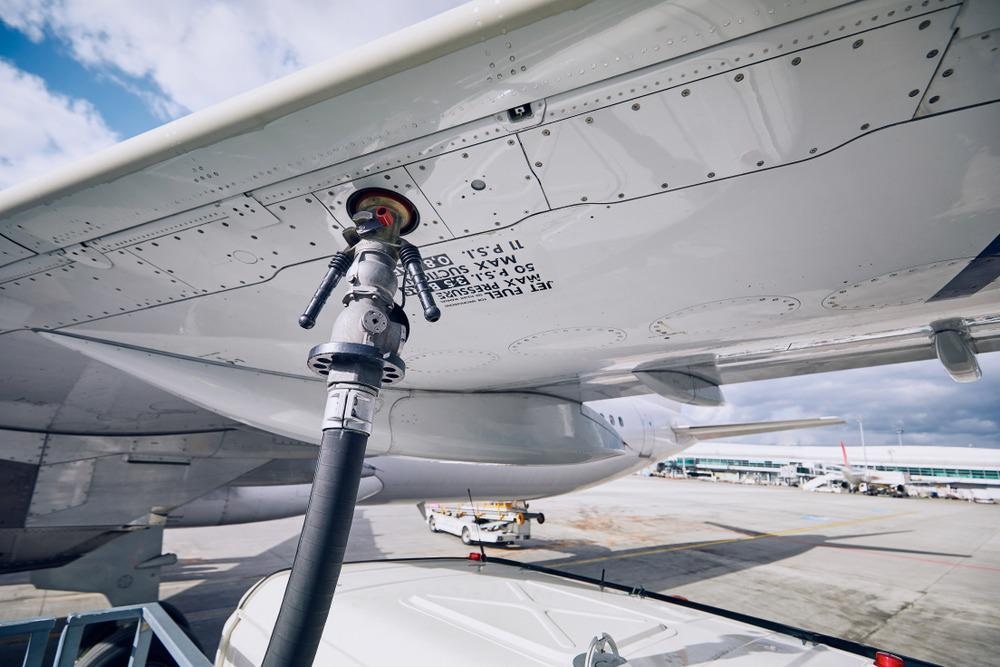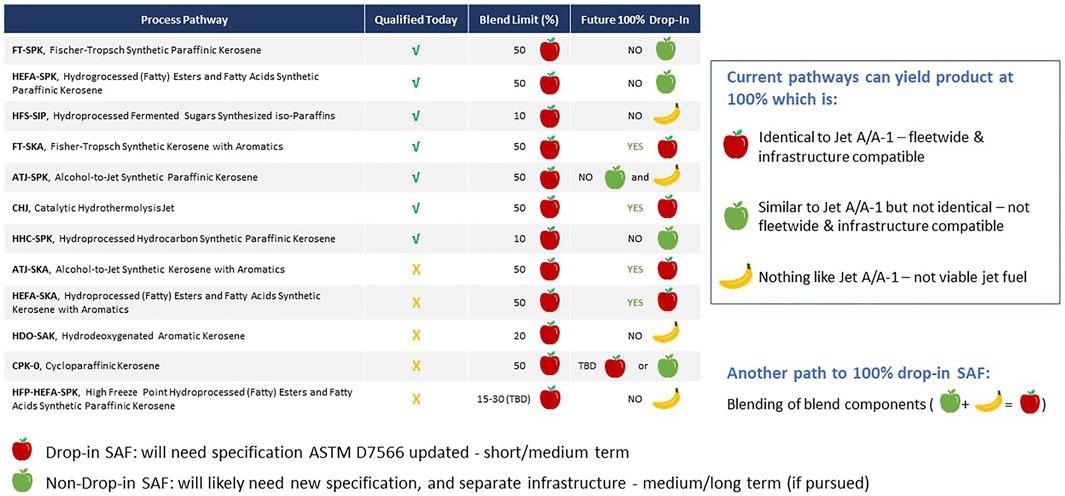Sustainable, low-carbon fuels are a focus of research into reducing the greenhouse gas emissions and environmental impact of the global aviation industry. The design of one hundred percent synthetic, sustainable fuels that meet the demands of the aviation industry is the focus of a new study published online in Frontiers in Energy Research.

Study: Perspectives on Fully Synthesized Sustainable Aviation Fuels: Direction and Opportunities. Image Credit: Jaromir Chalabala/Shutterstock.com
Producing Greener Aviation Fuel Alternatives
Aviation is one of the main sources of greenhouse gas emissions and, consequently, a main driver of anthropogenic climate change. Aircraft manufacturers and commercial airlines have committed to achieving net-zero carbon emissions by 2050, with research into low-carbon aviation fuels central to the aims of the aviation industry.
However, current and near-term aircraft are designed around the use of petroleum-based fuels to provide the necessary power for flight. As these aircraft are intended to be used for the next few decades, alternative fuels must meet the performance of conventional petrochemical-derived fuels. There has been significant research in the aviation industry into synthetic (non-petroleum-based) fuel components with maximum blend limits to ensure performance in line with conventional jet A/A1 fuel.
It is important that synthetic fuel components do not have properties outside the acceptable ranges for Jet A/A1. However, many synthesized fuel components which have been approved for blending are not compatible with conventional jet fuel. They can lack required chemical components such as aromatics, and their characteristics can be outside the necessary ranges for aviation fuel. To ensure safety, synthesized fuel components are only approved for commercial use if they are blended up to approved limits.
The aviation industry’s need for 100% synthetic fuels which possess properties within the acceptable ranges for aviation fuel that meet sustainability criteria has facilitated significant research focus in recent years. However, these fuels must be developed, assessed, and deployed, and challenges exist in this area. Aside from performance needs, sustainable aviation fuels must also be cost-effective.
Developing Sustainable Aviation Fuels
The Commercial Aviation Alternative Fuels Initiative, a public-private partnership composed of the United States government, aviation fuel supply chain companies, and aviation sector stakeholders, has existed since 2006. The aim of this initiative is to improve energy security and environmental sustainability in the aviation industry by developing and implementing alternative, sustainable fuels.
Initial work by the initiative and industry has been on the qualification of synthesized fuel blending components that come from non-petroleum sources which can be added to conventional aviation fuel. However, synthesized fuel components do not always come from sustainable sources, which is at odds with goals to reduce climate change and environmental damage.

Types of synthesized fuel blendstocks and their ability to be used as drop-in fuels as blendstocks or as stand-alone fuel. The red apples indicate fuels that can be drop-in, green apples are similar to drop-ins and may be usable in some existing aircraft but would require modification of the existing specifications and possibly infrastructure, and bananas indicate fuels that are completely different from petroleum-based kerosene and could not be used as stand-alone jet fuel in current infrastructure or equipment. Image Credit: Kramer, S et al., Frontiers in Energy Research
To address this issue, aviation stakeholders and International Civil Aviation Organization (ICAO) member states have worked together to put in place processes that evaluate key sustainability factors such as feedstock, land-use, production, social impact, and life-cycle carbon footprints. Additionally, relevant environmental, social, and economic risks have been taken into account. This work has resulted in the ICAO Carbon-Off-setting and Reduction Scheme for International Aviation.
Sustainable Aviation Fuels are, thus, certified as sustainable if they meet the criteria set forth in this and other approaches. Currently, production of these fuels is around 1% of total global production, but the USA has set a target of 3 billion gallons of sustainable aviation fuel production by 2020, which represents 10% of anticipated annual consumption. Complete replacement of jet fuel produced from petroleum is targeted for 2050. Several initiatives are in place globally.
The Study
The new study in Frontiers in Energy Research has considered key questions in this area to investigate the production and implementation of 100% synthetic sustainable aviation fuel as a replacement for fossil-fuel use in the global aviation industry. A comprehensive review of current literature, initiatives, and research directions has been performed by the authors.
The authors have reached some important conclusions on the implementation and timescale of achieving sustainability in the aviation industry in respect to synthetic, sustainable fuels that will meet the safety, performance, and economic requirements of aviation companies and stakeholders within the industry.
Firstly, the authors have concluded that near-term unblended synthetic fuels will need to be compatible with current aircraft and infrastructure, a term known as “drop-in.” Secondly, progress in the field could lead to the qualification of stand-alone synthetic fuels within the next 1-2 years. Blends of blending components should reach 100% soon afterward.
Finally, the authors have concluded that sustainability criteria, while vital for acceptance of alternative, synthesized fuels, will need to continue to be assessed separately from their technical performance.
Further Reading
Kramer, S et al. (2022) Perspectives on Fully Synthesized Sustainable Aviation Fuels: Direction and Opportunities [online] Frontiers in Energy Research 9 | frontiersin.org. Available at: https://www.frontiersin.org/articles/10.3389/fenrg.2021.782823/full
Disclaimer: The views expressed here are those of the author expressed in their private capacity and do not necessarily represent the views of AZoM.com Limited T/A AZoNetwork the owner and operator of this website. This disclaimer forms part of the Terms and conditions of use of this website.